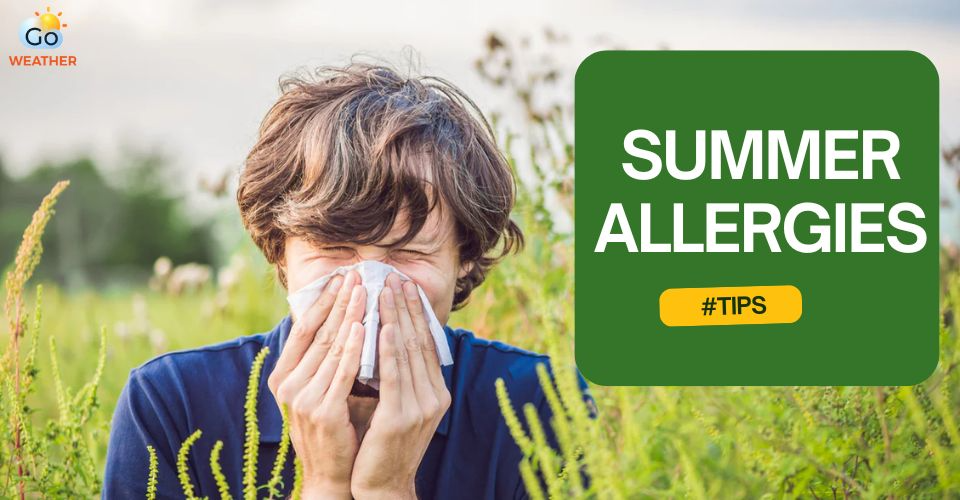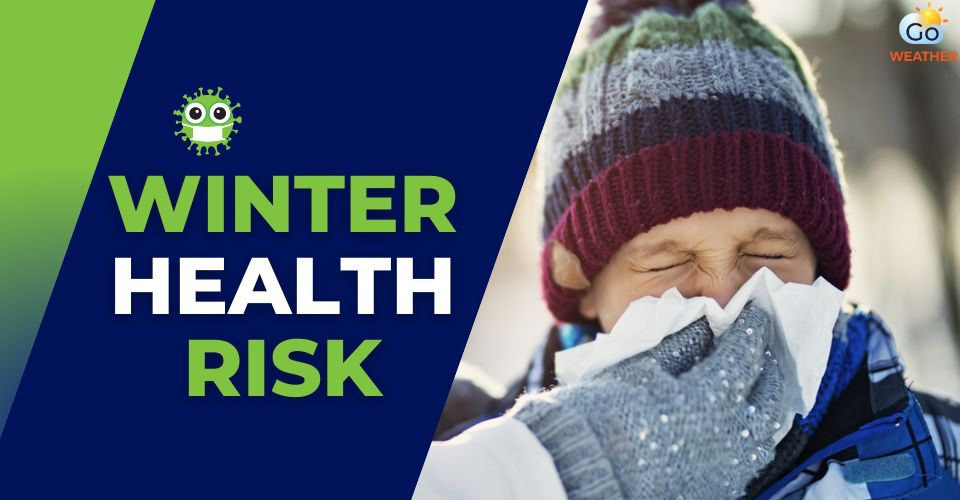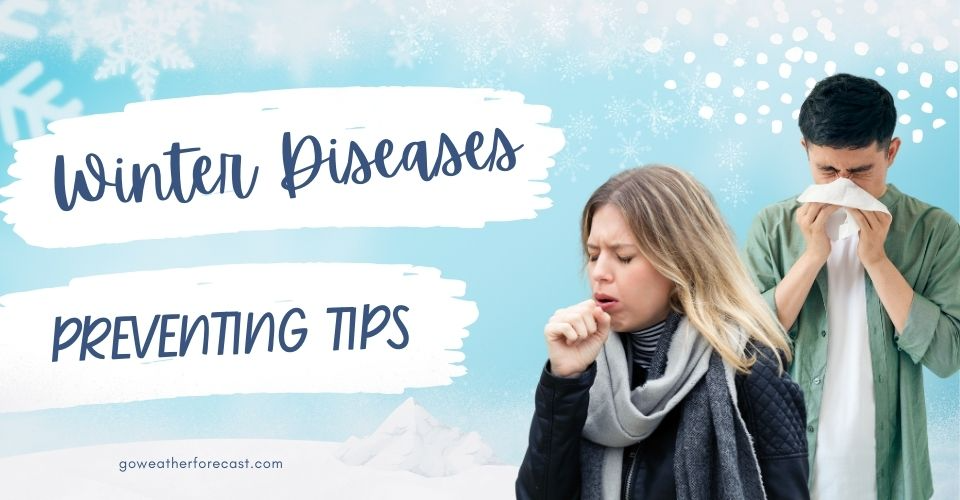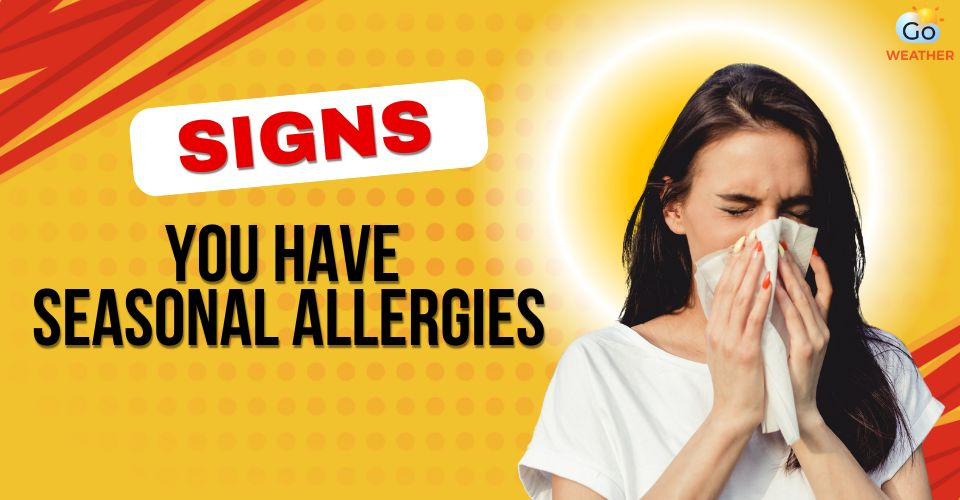5+ Common Signs You Have Seasonal Allergies: Keep Them In Check Now
- What Are Seasonal Allergies?
- Signs You Have Seasonal Allergies
- Typical allergies symptoms
- Less common signs you have allergies
- Causes of Seasonal Allergies
- Spring
- Summer
- Autumn
- Winter
- How to Tell the Difference Between Allergies vs Covid-19?
- How to Prevent a Seasonal Allergy?
- How to Treat Seasonal Allergies?
The change of seasons spells misery. Many people are reported to struggle with seasonal allergies. There are many signs you have seasonal allergies. They occur when the immune system overreacts to normal environmental factors, such as pollen from trees, grasses, and weeds. People with seasonal allergies will develop allergy symptoms quickly when exposed to adverse factors. In this article, we will present 5+ common symptoms and tips to cope with them.
.jpg)
How to know if you have seasonal allergies?
What Are Seasonal Allergies?
Seasonal allergies, often known as hay fever or allergic rhinitis, are prevalent illnesses affecting millions of Americans. They result from an allergic reaction to the plant and mold growth cycles.
Plants and mold emit pollen and spores into the atmosphere as they mature. When you breathe in pollen and spores, you may experience inflammation, irritation, and other symptoms.
.jpg)
Seasonal allergies
Signs You Have Seasonal Allergies
Typical allergies symptoms
There's a good chance you have seasonal allergies if you have any of the following symptoms:
.jpg)
Common signs you have allergies
Less common signs you have allergies
Those aforementioned symptoms are obvious, but your allergies might not show up in one way. The following signs are less common but may still indicate seasonal allergies:
-
Wheezing
-
Coughing
-
Headache
Causes of Seasonal Allergies
Can you suddenly get seasonal allergies? Like food allergies, seasonal allergies can begin and stop at any time during your life.
Generally, they occur when the immune system responds to an airborne substance by releasing histamines and other chemicals into the bloodstream.
Those chemicals produce several common signs of seasonal allergies. Note that the causes of hay fever vary by season.
.jpg)
What causes seasonal allergies?
Spring
In spring, seasonal allergies are mainly caused by trees. Birch pollen is one of the most common culprits in northern latitudes, causing hay fever. Other allergenic trees in North America are cedar, horse chestnut, and poplar.
Summer
The name hay fever originates from the hay-cutting season. However, grasses and certain weeds are the real triggers of seasonal allergies in the summer months.
According to the Asthma and Allergy Foundation of America, grasses are the most common culprit of hay fever.
Autumn
Autumn is the ragweed season. Ragweed grows in temperate regions of North and South America and is challenging to control.
Their pollen is also the cause of signs that you have seasonal allergies. Others drop pollen in the autumn, including nettles, mugworts, sorrels, fat hens, and plantains.
► Read more: Winter season diseases
Winter
For those with hay fever, the winter brings relief as most outdoor allergens lie dormant. However, you may experience indoor allergens, such as mold or pet dander.
.jpg)
Signs you have seasonal allergies are easy to realize
Removing indoor allergens is often easier than outdoor pollen. Here are a few tips to get rid of common allergens in your home.
-
Wash your bedding at least once a week with hot water to sterilize
-
Use allergen-proof covers for bedding and pillows
-
Remove carpets, upholstered furniture, and stuffed toys.
-
Fix water leaks and clean up water damage.
-
Clean moldy surfaces and any places where mold may form.
-
Reduce excess moisture using a dehumidifier.
How to Tell the Difference Between Allergies vs Covid-19?
Many people mistake seasonal allergies for COVID-19 since both occur with every sneeze, cough, or tickle in the throat. However, there are some key differences between seasonal allergies and COVID-19.
.jpg)
How do I know if I have seasonal allergies?
-
Those with allergies often have a history of seasonal allergies.
-
Signs you have allergies to pollen tend to be more long-lasting.
-
Allergy symptoms often respond to allergy medications.
-
Itchiness is a symptom of allergies, not of viral illness.
-
Those with allergies do not develop a fever, while people with COVID-19 do.
-
Patients with allergies may cause wheezing, while COVID-19 typically does not.
► Read more: Health problems in cold weather
How to Prevent a Seasonal Allergy?
Seasonal allergies can be an uncomfortable condition to live with.
The key to reducing symptoms is limiting your exposure to triggers such as dust, mold spores, or pollen by following these ways:
.jpg)
Tips to deal with seasonal allergies
How to Treat Seasonal Allergies?
In addition to taking precautions to reduce your exposure to allergy triggers, several safe, effective allergy medications address particular symptoms.
Most allergy medications are now available over the counter and can be classified as oral antihistamines, nasal sprays, or eye drops.
.jpg)
How to treat seasonal allergies?
If allergy-reducing treatments do not work, you should immediately see a specialist for prompt diagnosis and treatment. Sometimes, you must visit an allergist or ear, nose, and throat specialist for allergy testing.
Conclusion
Ultimately, if your allergies aren't severe, then it’s OK to take an over-the-counter allergy pill. If they are, you might need to go for an allergy test to find out what you are allergic to and get the necessary medical treatment. So, these are common signs you have seasonal allergies. If there are any others that we miss out on, comment below to let us know!










0 Comments
Leave a Comment
Your email address will not be published. Required fields are marked *